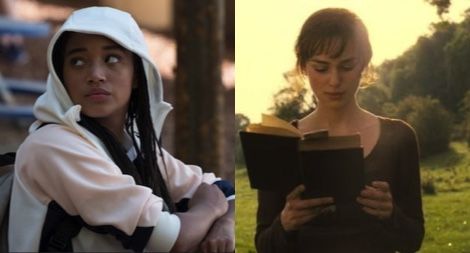
Our Favorite Women In Books
As a way to honour International Women’s Day this 8th of March, we’ve asked our contributors to tell us a little about their favourite female characters in literature. This is our way to show our love to all women around the world—including fictional women in books!
 Isobel Martin, The Night Circus by Erin Morgenstern
Isobel Martin, The Night Circus by Erin Morgenstern
The Night Circus is still one of my favourite books and I felt a connection to Isobel from the moment she was introduced. She isn’t even the main character, but she always seemed very human to me. We’ve all been through heartbreak, we’ve all acted impulsively out of love—and for being out of love. I would have been thrilled to know more about Isobel’s backstory, it’s a character that has always stayed with me.
Luna Lovegood, Harry Potter Series by JK Rowling
It seems like an obvious one but I had to represent. She’s kind, and strange, and not afraid to be herself. Wish that we had more of Luna’s confidence everyday! Also, those radish earrings and sneakers are amazingly stylish.
Bathsheba Everdene, Far From The Madding Crowd by Thomas Hardy
Aside from a name you can’t forget, Bathsheba is one tough cookie. She runs her own farm in 19th Century England, refusing to ride side saddle (yay, that’s right!), and taking command of the men who work for her. She has a somewhat tumultuous love life with suitors lining up to woo her, yet she remains strong throughout the entire novel.
 Flavia de Luce, The Sweetness at the Bottom of the Pie by Alan Bradley
Flavia de Luce, The Sweetness at the Bottom of the Pie by Alan Bradley
One of my faves isn’t quite a woman yet, but is a pretty fantastic little girl. I love dress-hating, science-loving, eleven-year-old Flavia de Luce so hard. She lives in an old English country house with her widowed father where she spends her days devising ways to torture her two older sisters, concocting potions and poisons in her very own chemistry lab and sticking her nose where it probably doesn’t belong. She’s precocious and sassy, and one of my favourite amateur sleuths of all time.
Rahima, The Pearl That Broke Its Shell by Nadia Hashimi
Kabul, 2007. Rahima and her sisters do not have a brother—and their father struggles with drug addiction. As girls, they are seldom allowed to leave the house and go to school. All that changes when Rahima becomes Rahim, inspired by an ancient custom known as bacha posh, which allows Rahima to dress and be treated as a boy (including being able to go to school and chaperone her younger sisters). The catch: this is only allowed until Rahima hits puberty and is old enough to marry. This novel is a must-read, filled with strong, brave, and resourceful women. Rahima is a true heroine.
Jane Eyre, Jane Eyre by Charlotte Brontë
Jane is one of my favourite women in fiction. She’s smart, resourceful, self-possessed, and always speaks her mind. In the face of constraining early 19th century gender norms and her lowly social status, Jane still finds the determination and courage to follow her own conscience, even when she suffers for it. I love her power: “I am no bird; and no net ensnares me; I am a free human being with an independent will.” Jane Eyre is my hero.
 Starr Carter, The Hate U Give by Angie Thomas
Starr Carter, The Hate U Give by Angie Thomas
Starr is a pretty amazing teenager. Being the only black girl in an all-white school is stressful sometimes. She finds herself straddling two worlds as she navigates challenging situations with friends and family. When she watches her childhood friend get shot by the police, life gets even tougher. And even though she’s afraid, she steps up, speaks out, and acts with courage. She stands up for her friends, family, and community when so many other kids would take the easy way out. I love Starr’s bravery and compassion.
Elizabeth Bennet, Pride and Prejudice by Jane Austen
She’s clever, witty, independent, and self-assured—all during a time in which those qualities weren’t necessarily admired in women. Not to mention she’d rather be an independent spinster than marry someone she doesn’t like, even if her home or a small fortune is on the line. She’s not sacrificing her principles for anything. That’s my kind of girl! She’s not at all perfect, but I love seeing her get to be unapologetically smart and headstrong. She gets to make mistakes but also overcome them and learn from them. I think we could all do with being a little more like Lizzy (and Jane, too).
Alma Whittaker, The Signature of All Things by Elizabeth Gilbert
The nineteenth-century was particularly unkind to women. Elizabeth Gilbert creates a woman, Alma Whittaker, who gets to do everything a man could because she escapes the roles destined for most women of her era. Alma is homely, and that works to her advantage, allowing her to pursue her love of botany instead. Alma’s life is one of relentless suffering and constant craving, yet that pays off too. Gilbert creatively weaves Alma’s fictional life into the most important discovery of nineteenth-century, and does it in a most satisfying way.
 Lisbeth Salander, The Girl with the Dragon Tattoo by Stieg Larsson
Lisbeth Salander, The Girl with the Dragon Tattoo by Stieg Larsson
The male revenge narrative is well-worn ground. An innocent, stereotypically feminine, and usually off-screen phantasm of a woman, serves as the proverbial virgin sacrifice while the bereaved husband, father, or brother goes on a violent rampage to find and kill the perpetrator. Lisbeth is no respecter of this patriarchal fantasy. She is brutally assaulted; she brutally assaults her rapist. She is hunted; she hunts the hunter. She is witness to misogynistic violence; she unleashes her fury on violent misogynists. It doesn’t matter who the victims are, what they mean to her personally. She is an orchestrator of universal feminine justice in a world that offers precious little. Women have revenge fantasies too.
Cass, The Secret Series by Pseudonymous Bosch
Cass is a survivalist. She’s independently driven, constantly prepares for any possible disaster, and is ready for any adventure. Even though Cass’s strengths paint her as strong and lovable, her flaws are the best part about her. Women in literature are often painted as near-perfect characters, but Cass is a little bit of a brat without it taking over her entire personality. She’s not great with friends. She can be pretentious at times. Even though she loves her mom unconditionally, she causes her a lot of anxiety by keeping secrets. The child audience of The Secret Series can see their own mistakes in Cass while still simultaneously viewing her as a role model, and her gradual maturity shows how to accept your flaws and grow from them.
Minerva McGonagall, Harry Potter by J.K. Rowling
Professor McGonagall suffers no fools. She and Mrs. Weasley make up a mother figure duo. Harry notes that Minerva is strict, but fair. Minerva makes sure that all students are relatively safe, and does her best to make Lee Jordan commentate neutrally. She’s also the one who pointed out to Dumbledore that the Dursleys were terrible guardians. Frankly, I wish we had seen more of her awesome qualities.
 Sunny Nwazue, Akata Witch and Akata Warrior by Nnedi Okorafor
Sunny Nwazue, Akata Witch and Akata Warrior by Nnedi Okorafor
Sunny is a powerful young girl with incredible powers. Okorafor allows her to be an actual young adult. She is working hard to learn the magical secrets of Nsibidi and to not be frightened of the river monster, all while going to school as usual during the day. She and her friends are courageous, fun, and full of laughter. She is rebellious and protective of those she loves, she is brave and dealing with adventures that no young girl should have to deal with. She has a pet wasp who creates sculptures; she loves to play soccer. I really just love Okorafor’s knack for writing real characters, who both act their age but also rise up to the challenges they are given.
Denver, Beloved by Toni Morrison
Denver has endured a lot of pain in her life, and her coping skills resonated so deeply with me: she is shy, introspective, terribly lonely, and created her own safe, beautiful space when the house becomes too much. Yet Denver has immeasurable strength inside her, despite being afraid of the outside world, despite her desperate need for company in the form of the baby ghost in the house (Beloved). She leaves the only home she’s ever known to work to support her and her mother, and finds her own purpose and identity. Denver speaks to anyone who’s also felt excluded, forgotten, tied to a home that may not be happy but it’s all you’ve ever known, and who has then gone out into the world to forge their own path, no matter how frightening that is. She is so courageous, and one of my all time favorite characters. Denver endures, at first, but then she thrives on her own terms.
Aster, An Unkindness of Ghosts by Rivers Solomon
I just recently read An Unkindness of Ghosts and Aster is just the nerdiest, smartest, most complicated, awkward, and coolest character I’ve come across in a while. I keep thinking about her at least once a day since I finished the book. Aster lives in the lower deck slums of a generation space ship that strongly resembles the antebellum south and she’s a brilliant, burgeoning scientist and healer. Aster deals with the power structure, her feelings for her friends, and her sexuality all while trying to decipher her mother’s old journals, which might be the key to saving everyone she cares about. Aster is just so complex and interesting, I won’t be forgetting about her anytime soon.
 Essun, The Broken Earth Trilogy by N.K. Jemisn
Essun, The Broken Earth Trilogy by N.K. Jemisn
Where do I even start? Essun is fierce, flawed, powerful, and brilliant. But what I love most about her is that she is a whole person: complicated, nuanced, full of contradictions. She messes up. Sometimes she’s violent. She’s rough and stubborn and unapologetic and tender, all at the same time. She fights and she get exhausted. She gets angry and yells. She acts fearlessly but she is not unafraid. She isn’t always a good mother. Her life is messy and hard. It is so rare, I think, to find such fully human women characters in science fiction and fantasy. Essun is not “good” and she’s not a role model—at least, not in the traditional sense, where role models need to be perfect and morally unambiguous. Essun is the only kind of role model I want the young girls in my life to know: she is not perfect, and she gets into big messes, but she knows herself. She speaks up for herself. She admits it when she’s wrong. She’s constantly changing and reinventing herself, but she is resilient. She struggles—with her world, with the people she loves, with herself and her own emotions—but she does not turn away from her life, her work, her people. Essun is so beautifully real, and I love her all the way down, through all her wisdom and flaws.
We’d love for you to share your favourite female characters with us!
And while we’re at it, why don’t you take a look at Book Riot’s feminist book club, Persist? We’ll be reading a new book every three months and we’ll then discuss it on Instragram live. Come and join us, open to all!



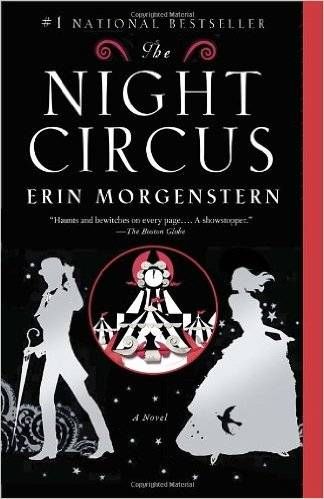 Isobel Martin,
Isobel Martin, 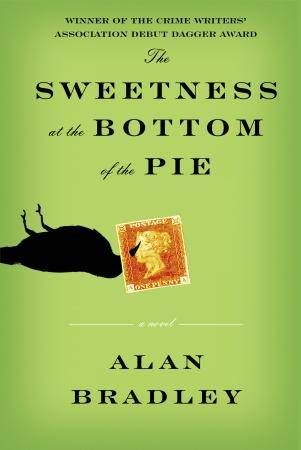 Flavia de Luce,
Flavia de Luce, 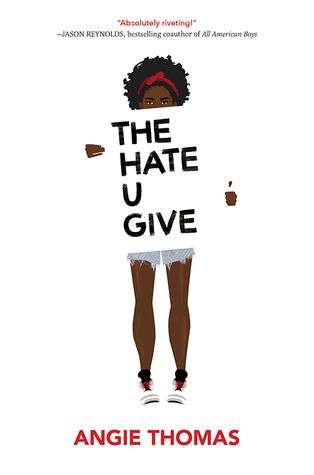 Starr Carter,
Starr Carter, 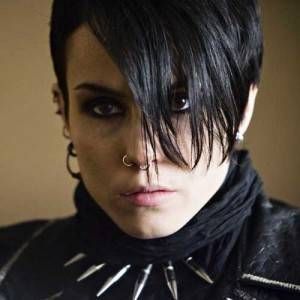 Lisbeth Salander,
Lisbeth Salander, 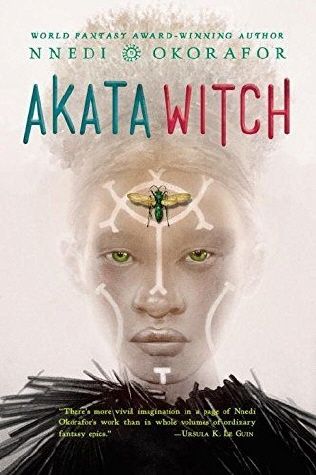 Sunny Nwazue,
Sunny Nwazue,  Essun,
Essun, 







